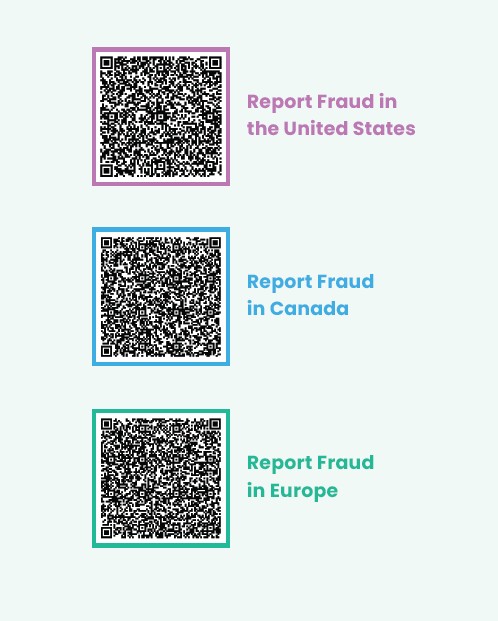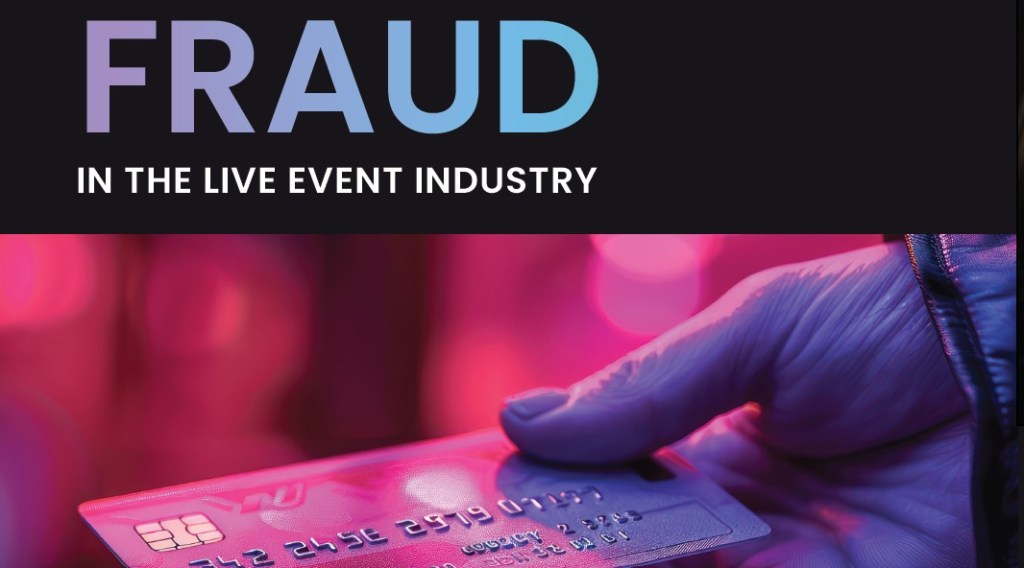As live-event organizations, we spend much of our time thinking about how we can grow revenue by increasing attendance, expanding to new audiences, and raising ticket prices over time. We often forget that profit is not synonymous with revenue. There is overhead, staffing, production, and operational costs, all of which can be optimized and reduced. However, two rapidly growing, but often ignored, cost centers are fraud and cyber-security attacks.
Fraud is like having holes in your boat—no matter how fast you paddle or how big your boat is, those holes keep taking on water and weighing you down. And with the recent growth in fraud attempts across all online industries, those holes just keep growing larger.
Juniper Research, a leading market research firm, predicts that the cost of global online payment fraud was $38 billion in 2023 and will grow to $91 billion by 2028.
Organizations in North America are at critical risk of fraud, as the continent is expected to represent 42% of online payment fraud globally.
Unfortunately, the live-event industry is not immune to this growing threat. In fact, live-event organizations are uniquely vulnerable to specific types of fraud like chargebacks, business impersonation, and duplicate ticket reselling.
Fraud can take many forms, but when we talk about fraud, we’re typically talking about criminal deception rather than an outright attack.
LIGHTS. CAMERA. FRAUD!
In the live event industry, fraud is most commonly experienced in three forms:
1. Chargeback Fraud: When consumers make a purchase on their credit card and subsequently dispute the charges on false grounds.
2. Business Impersonation Fraud: When bad actors falsely pose as your business, pretending to be an official ticket seller and take payment but do not provide real tickets to attendees.
3. Ticket Reselling Fraud: Any type of fake or fraudulent tickets being resold by bad actors. Examples include photoshopped tickets with fake barcodes, selling the same ticket multiple times, or simply “selling” a ticket that never gets delivered.
Whether fraud has already cost you millions or has yet to impact your organization, now is the time to learn, prepare, and defend your organization.
FRIENDLY FRAUD
Chances are your organization has experienced chargebacks. However, not all chargebacks are created equal. In fact, many chargebacks are legitimate disputes. These are typically either when the seller has made some form of an error, or the purchaser was using a stolen credit card. A chargeback becomes fraud when the purchaser falsely claims the reason for the chargeback. This is commonly referred to as friendly fraud because the purchaser is actually a customer. Friendly fraud may be accidental or intentional.
Below are some typical friendly fraud situations where customers initiate a chargeback:
• The ticket purchaser cannot attend the event anymore due to unforeseen circumstances, and their ticket is non-refundable.
• The ticket purchaser forgot they made the purchase and doesn’t recognize the charge on their statement.
• The ticket purchaser wants to get new seats or dates but can’t exchange their tickets, so they buy new tickets and initiate a chargeback on the original tickets.
In the live-event industry, friendly fraud, a form of chargeback fraud, is rampant. According to a study by the Merchant Risk Council, 34% of chargebacks in the event ticketing industry are considered “friendly fraud,” meaning they are disputes filed for valid transactions.
Friendly fraud is a problem in the live-event industry for many reasons, but namely because it results in lost ticket revenue in addition to a typical chargeback fee of $15-$50 charged to the ticket seller.
So how can live-event organizations defend against chargeback fraud and friendly fraud while still recognizing and supporting legitimate chargeback claims?
• Provide Alternatives to Attendees: Let your patrons facilitate online self-serve exchanges easily, include ticket-protection options like Cover Genius, and/or offer higher-priced refundable ticket types.
• Create Barriers to Low-Effort Fraud Attempts: Enable address verification and CVV verification with your payment gateway provider and set ticket purchase limits per transaction to ensure bad actors can’t place large, fraudulent orders.
• Leverage Fraud Detection Tools: Many solutions offer advanced fraud detection systems that continuously monitor transactions, learning from past fraud cases to stop them in their tracks. Machine learning-based fraud detection could be a game changer in stopping fraudulent transactions before they are completed.
BUSINESS IMPERSONATION FRAUD
Business impersonation fraud is a truly malicious form of fraud. Unfortunately, it is also a big problem. According to the FTC, business impersonation fraud costed U.S. consumers over $2.7 billion in 2022. That cost roughly doubled from the previous year and has shown no signs of slowing its growth.
Business impersonation fraud can be especially difficult to protect your attendees against, because consumers believe they’re dealing with your organization. The best way to protect against business impersonation fraud is to clearly communicate with all your attendees the official methods to purchase legitimate tickets. Ideally, this information should be communicated multiple times, through multiple channels, such as direct emails to your patron-base outlining the legitimate means to purchase authentic tickets (your website, any legitimate third-party distribution or resellers, etc.), and website notices on your homepage.
If your organization and attendees do fall victim to business impersonation fraud, you should immediately report the crime with all the details to the appropriate authorities. We’ve provided those resources below, by locale.

TICKET RESELLING FRAUD
Ticket reselling fraud is the final form of fraud that commonly affects the live-event industry. Ticket reselling fraud is also likely the most impactful form of fraud on your attendees. It’s easy to execute by scammers, difficult to identify by ticket purchasers, and often results in devastated patrons come event-day. If you’ve spent any time in a box office over the past few years, you’ve almost certainly witnessed first-hand the disappointment that comes with attendees learning their tickets are fake, and they’ve been defrauded.
Ticket reselling fraud is, unsurprisingly, also on the rise. Santander, a UK-based bank, reported that fake ticket scams in the UK more than doubled from 2022 to 2023. The leading method for promoting fake ticket scams is through social media, so using your organization’s social media presence to reaffirm the legitimate ways to purchase tickets is a great first step to reducing the impact of this type of fraud.
While technology has provided bad actors the tools they need to commit fraud, it also provides the greatest means to fight back against them.
Fraud is pervasive and it’s evolving, and that means we must evolve as well. As a growing live-event organization, you need to go beyond focusing internally on combating fraud. You need to surround yourself with best-in-class partners who can amplify your efforts tenfold to always be a step ahead of bad actors.

